I have written the following C code:

It simply allocates an array of 1000000 integers and another integer, and sets the first integer of the array to 0
I compiled this using gcc -g test.c -o test -fno-stack-protector
It gives a very weird disassembly:
Apparently it keeps allocating 4096 bytes on the stack in a loop, and "or"s every 4096th byte with 0 and then once it reaches 3997696 bytes, it then further allocates 2184 bytes. It then proceeds to set the 4000000th byte (which was never allocated) to 5.
Why doesn't it allocate the full 4000004 bytes that were requested? Why does it "or" every 4096th byte with 0, which is a useless instruction?
Am I understanding something wrong here?
NOTE: This was compiled with gcc version 9.3. gcc version 7.4 does not do the loop and "or" every 4096th byte with 0, but it does allocate only 3997696+2184=3999880 bytes but still sets the 4000000th byte to 5